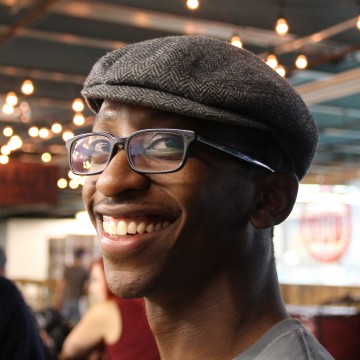Digital Lessons from the 2016 FSNE Racial Equity Challenge
June 20, 2016 Leave a comment
IISC Communications was ecstatic to partner with Food Solutions New England (FSNE) on the 2016 Racial Equity Challenge. IISC Comms is always trying to learn about how digital and analog interactions support each other. Given IISC’s mission “to create social justice and sustainability,” we know that both face-to-face conversations and online/digital conversations are needed. We also know that while many social change organizations are hesitant to engage in online spaces (it’s tricky, new, and the potential for backlash is high), for-profit corporations haven’t hesitated at all. In fact, they pay massive sums of money for online campaigning and research regarding how people interact with and consume digital content. Social change organizations don’t have near an equivalent amount of resources devoted to digital spaces to tip the conversation.
We saw an opportunity this Spring to join forces with FSNE’s Communications Coordinator, Johanna Rosen, to normalize conversations about race and racism. The group was hosting a second year of a 21-day Equity Habit Building Challenge. The challenge is a mix of sharing resources and sparking conversations in an effort to increase understanding about racial equity. FSNE is a network of food producers and community advocates, spread around the region with various levels of experience and access to digital media. What tools will best support this process, we asked?
Three Lessons
Lesson 1: It is critically important to choose your tools based on your desired audience.
Last year’s challenge utilized an online forum and had quite disappointing results. It is often a barrier to participation when people are asked to sign in to yet another thing.This year, online engagement was significantly higher. Intentional decisions within the organizing team to use email and WordPress likely made it more comfortable for the network’s primary membership.
Lesson 2: Only certain pieces of difficult conversations happen well in online spaces.
We have a hypothesis that certain types of conversations happen well online and others happen better in person. IISC has cultivated decades of expertise and wisdom regarding face to face conversation. And we also know that truly difficult, challenging conversations are best facilitated “in the room.” This usually has something to do with how people are required to remain engaged while physically in a space. When people come across content or information that disagrees with their worldviews online, the barrier to walking away is significantly lower.
We believe this matches our experience with the challenge. Rarely did anyone comment about having an earth-shattering moment of realization (though there were many non-earth-shattering realizations). However, the group’s organizers have heard of powerful moments happening in face-to-face contexts that were organized during the 21-day Racial Equity Habit Building Challenge.
We also noticed a drop-off in participation over the course of challenge. The first week of the challenge averaged 19 comments per post, while the final week averaged only two. Though many factors likely contributed to this, we know that experiencing difficult subject matter can easily prompt disengagement. It is important to think through the arc of the experience and how to maintain and/or re-energize participation.
Lesson 3: Facilitating someone joining a conversation in the middle is always tricky but important to plan for.
News of the 21-day Racial Equity Habit Building Challenge spread and hundreds of people wanted to join after it had started. We were not prepared for this amazing possibility!IISC core methodology, The Interaction Method, makes special note of how important it is it to facilitate the introduction of someone who has joined a conversation midway. It can be troublesome if that is not planned for. In this case, when hundreds of participants joined after the launch, Johanna innovated on the spot and helped new participants get caught by sending them emails manually!The alternatives are to create the program to automatically send all previous emails to new participants, start all new sign-ups at Day 1, or to simply hold new participants until it is time for another cohort. It really depends on the situation.
The success of this project is due to the serious network weaving and organizing that FSNE has been doing for years. We are thrilled to be in partnership to continue exploring and discovering best practices for having deep and meaningful conversations that change people’s hearts and minds, in both face-to-face and digital contexts.
To learn more about the work of Food Solutions New England visit: http://www.foodsolutionsne.org/. This year’s WordPress site for the challenge is here: https://racialequitychallenge.wordpress.com/.

